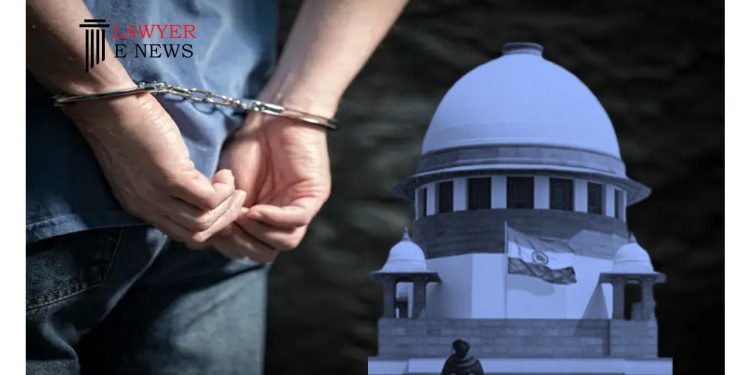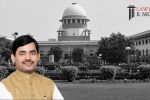Arrest is not a Punitive tool: SC

D.D:20-07-2022
The Supreme Court stated that Alt News Co-Founder Mohd. Zubair is caught in a vicious cycle of multiple cases and prohibited the UP police from taking action against Zubair in the registered case.
The bench of Justices DY Chandrachud, AS Bopanna, and Surya Kant observed that police officers have the authority to arrest suspects at various stages of the criminal justice process, including during the investigation phase.
Nonetheless, this power is not absolute. According to Section 41(1)(b)(ii) of the Criminal Code, the arresting officer must be satisfied that the arrest is necessary to prevent the suspect from committing any further offences, for the proper investigation of the offence, to prevent the suspect from tampering with or destroying evidence, to prevent them from influencing or intimidating potential witnesses, or when it is impossible to ensure the suspect’s presence in court without arresting them.
The Court went on to say:
Before making an arrest, police officers must apply their minds to the case at hand and ensure that the conditions of Section 41 are met. This Court has repeatedly emphasised its significance, including in Arnesh Kumar v. State of Bihar.
We have reason to reiterate that the guidelines outlined in Arnesh Kumar (supra) must be adhered to in every instance. Section 41 establishes the rationale for arrest powers in relation to cognizable offences. Arrest is not intended to be and should not be used as a punitive measure, as it results in one of the most severe possible criminal law consequences: the loss of personal liberty.
Individuals should not be punished based solely on allegations and without a fair trial. When the power to arrest is exercised without due regard for the law and without proper application of the mind, this constitutes an abuse of power. The criminal law and its procedures should not be used as a means of harassment. Section 41 of the CrPC and the safeguards in criminal law exist in recognition of the reality that any criminal proceeding almost invariably pits the unlimited resources of the state against a solitary individual.
The court noted that whenever Zubair is granted bail in one case, another FIR is filed against him in a different district, perpetuating the vicious cycle.
The court also noted that the contents of the FIR appear to be identical, and conveyed this information to state government attorney Tushar Mehta.
After reviewing the facts of the case, the court determined that Zubair was subjected to the state’s criminal justice system.
Notably, the court ruled that arrest should not be used as a form of punishment and that the power to arrest is not absolute.
While refusing to impose a bail condition prohibiting Zubair from tweeting, the court stated that bail conditions should be proportional and should not result in the deprivation of liberty or rights.
Noting this, the court granted Zubair bail in all UP cases and consolidated them with the FIR filed in Delhi.
The court also permitted Zubair to petition the Delhi High Court for the dismissal of these cases.
Additionally, the court clarified that its directives in this case would also apply to cases that could be filed based on Zubair’s tweets.
Mohamed Zubair
versus
NCT of Delhi & Ors.






